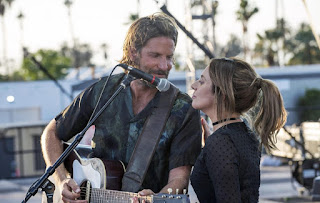Best Pictures #54: 2018 (91st) Academy Awards
My Pick for Best Picture
The 91st Academy Awards for films released in 2018 was held on February 24th, 2019 and will be remembered as the year that the Academy tried to change things up to reach a larger audience. In order to boost ratings (even though the Oscars are the highest rated non-sports event on TV), the Academy and Oscars telecast producers proposed ideas such as cutting out performances by the Original Song nominees, giving out awards during commercial breaks, and, most notoriously, adding the category of Best Popular Film. After massive backlash from people in the film industry and Oscar fans, all of these decisions were rolled back. Actor-comedian Kevin Hart was set to host, but he and the Academy caught heat for Hart's years old homophobic jokes on Twitter. The Academy wanted Hart to formally apologize, Hart refused, and dropped out as the host. So, the Oscars would air without a host for the first time since 1989. The final hiccup for the telecast happened when, after announcing that all of the Original Song nominees would perform, Kendrick Lamar announced just days before the ceremony that he would not be performing "All the Stars" from Black Panther.
The ceremony itself was no more or less eventful than previous ceremonies with hosts (excluding the year the wrong movie was read for Best Picture). Queen (with Adam Lambert singing) opened the show, presenters had mostly amusing banter, and, of course, eye-catching gowns and dresses. Alfonso Cuaron won his second Oscar for Best Director and, as a fan and Latin/Hispanic person, his award had a special meaning for me. In 2013 (Cuaron's Gravity), 2014 (Inarritu's Birdman), 2015 (Inarritu's The Revenant), 2017 (Del Toro's The Shape of Water), and now 2019 (Cuaron's Roma) the winner of the Best Director award has been a Mexican filmmaker. Glenn Close was the odds-on favorite to take home Best Actress, but The Favourite's Olivia Colman took home the award and no doubt upset the ballots of people trying to win their Oscar pools. My ballot was thrown off too, but I was very happy she won. Spike Lee finally won an Oscar for his work on BlacKkKlansman's adapted screenplay. Samuel L. Jackson, who presented Lee with the award, was almost as excited as Spike Lee, who jumped and hugged his friend.
Samuel L. Jackson's reaction to Green Book winning Best Original Screenplay could not have been more radically different; he stuttered over the names of the winners as he did a double take in disbelief. This was the reaction had by everyone at my Oscar party when Green Book won Best Picture. After a progressive step forward last year with the unconventional The Shape of Water as Best Picture, the Academy took a giant leap backwards by giving Best Picture to a mediocre, bland, conventional, and unchallenging movie like Green Book. Green Book will now have the distinction of joining Crash and The Greatest Show on Earth as one of the worst films to win the Academy Award for Best Picture. If ever there was a year that made the case for going back to just five Best Picture nominees, this was that year. Of the eight nominees, there were five solid, quality pictures (Black Panther, BlacKkKlansman, The Favourite, Roma, and A Star is Born) and three that belonged nowhere near any conversation about the best movies of the year (Bohemian Rhapsody, Green Book, Vice). Of those five quality pictures, there is one for me that stands out as the actual best picture of 2018.
My Pick for Best Picture of 2018: A Star is Born
Long before the fourth version of A Star is Born hit theaters, critics were singing its praises and raving about it non-stop. This always makes me skeptical about a movie. By the time a regular filmgoer like me gets to see the movie, will it be hyped out? Were the critics suffering from a bad case of festival fever (liking a movie too much because you saw it before anyone else)? In the case of La La Land: yes. A Star is Born, however, completely justifies the praise it has received. No other movie in 2018, not even Roma, affected me quite like the characters and pathos in Bradley Cooper's A Star is Born. I have no doubt that this was a passion project for Cooper; you can tell that care and thought went into every scene. While I'm happy Alfonso Cuaron won Best Cinematography for his excellent work in Roma, I would have given that award to Matthew Libatique for A Star is Born. Consider the image of Jackson performing "Pretty Woman" while extremely drunk. The camera sways slightly, but the angle is canted so we see him from below, cast in shadow and harsh stage lights, while the rest of the musicians wait anxiously for him to play the opening riff. The image of Cooper, head tilted down, wearing a cowboy hat and suit accompanied by his badass distorted electric guitar should be a very cool image. Instead this is one of the most tense moments in the movie. From the choice of angle and the lighting, you feel that he may fall flat to the floor (and on top of you) at any moment. It is thoughtful cinematic touches like this that work on a subconscious level that set Cooper's A Star is Born apart from not only its predecessors, but, for me, every other film in 2018.










































